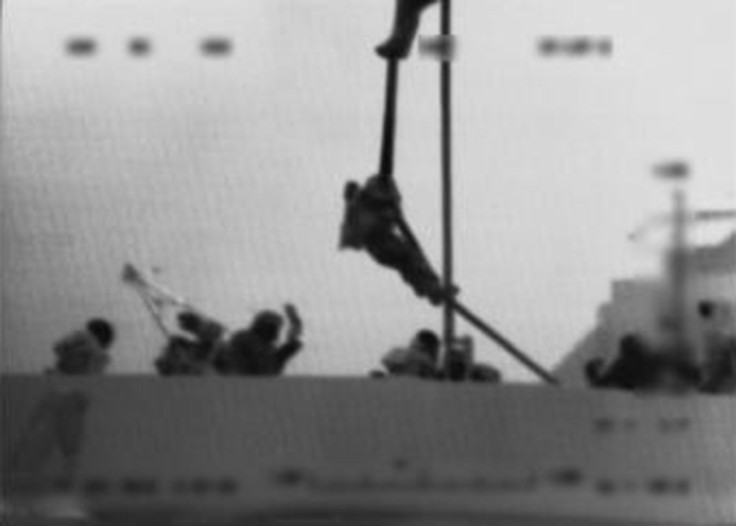Israel War Crimes: No Charges Over 2010 Ship Raid, Despite 'Reasonable Basis' They Were Committed, Says ICC

Israel will not be charged with war crimes by the International Criminal Court for its attack on an aid flotilla headed for Gaza in 2010, despite what lead prosecutor Fatou Bensouda called “a reasonable basis to believe that war crimes were committed.” Israeli commandos killed 10 Turkish activists -- one of them a teenage U.S. citizen -- traveling with the IHH Humanitarian Relief Foundation during a raid aboard the MV Mavi Marmara. The activists were attempting to break through an Israeli blockade of the Palestinian territory and deliver aid.
Bensouda said in a statement that “after carefully assessing all relevant considerations, I have concluded that the potential cases likely arising from an investigation into this incident would not be of ‘sufficient gravity’ to justify further action by the ICC,” per the ICC’s founding document, the Rome Statute. She went on to say that “without in any way minimizing the impact of the alleged crimes,” the ICC “shall prioritize war crimes committed on a large scale or pursuant to a plan or policy.”
The Israeli blockade of the Palestinian-controlled territory was first put into place in 2006 after the militant Hamas party won a majority in the 2006 Palestinian legislative election. Israel contends the blockade is necessary to stop Hamas militants from arming themselves with rockets capable of hitting Israeli territory, but critics say the stoppage of basic supplies chokes the territory.
Turkish activists reflagged the MV Mavi Marma – the flagship of the six-ship flotilla -- from a Turkish registration to a registration from the tiny Comoros Islands in the Indian Ocean just prior to the highly publicized operation to break the Gaza blockade. Neither Turkey nor Israel is party to the ICC, but the Comoros are. Israel said the activists, or the Turkish government, purposely did so to prompt an ICC investigation as a publicity stunt. The Comoros referred the case to the ICC, which required the court to conduct a preliminary investigation.
Turkish lawyers representing the small Indian Ocean state said they would ask judges to review the decision not to pursue a case.
The ICC statement said the conclusions made by the prosecutor’s office must “not be considered to be the result of an investigation,” because the prosecutor’s office did not collect the evidence itself, according to Reuters.
© Copyright IBTimes 2025. All rights reserved.






















